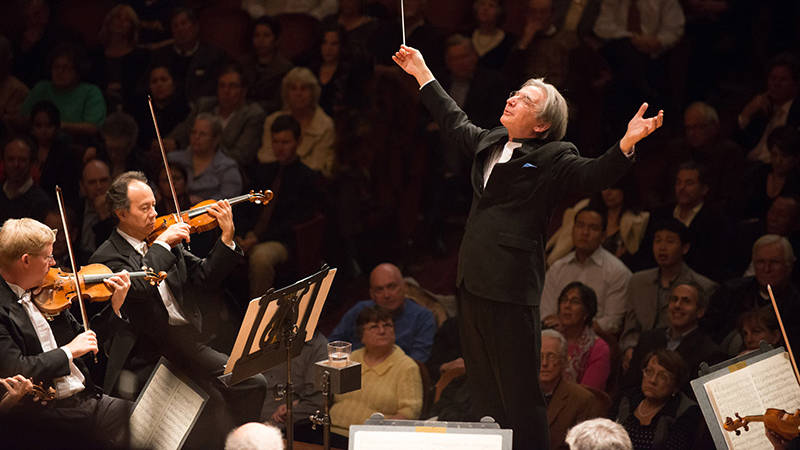The best of the best have recorded Robert Schumann’s Symphonies Nos. 1–4, including world-renowned ensembles such as Herbert von Karajan conducting the Berlin Philharmonic and Leonard Bernstein leading the New York Philharmonic. So how can an orchestra possibly re-imagine a piece of music that’s been performed since the mid-19th century, let alone render that performance original enough to be worthy of a Grammy nomination in 2019?
“In this traditional literature that we record, there’s certainly no point in recording it in these times unless you have something unique to say about it,” says Jack Vad, a producer and engineer who collaborated with outgoing music director Michael Tilson Thomas on the San Francisco Symphony’s recordings of Schumann’s symphonies. The double-disc set Schumann: Symphonies Nos. 1–4 (SFS Media), recorded in Davies Symphony Hall and released on the symphony’s own label, is up for Best Orchestral Performance at the 61st Grammy Awards this Sunday.
“The differences in interpretation that are exemplified in this particular set are ones that reflect a more nuanced, more sensitive and more intimate feeling about these pieces,” Vad tells me. “I think when you get to that level of subtlety, all of a sudden you find things that are a bit different. It’s easy to be loud and it’s easy to be quiet and simple, but there are a whole lot of other things in between.”
Admittedly, like most people, I’ve always been more into to the pop performances and celebrity drama at the Grammy Awards (like Ariana Grande beefing with Grammy producer Ken Ehlrich this year). But there are dozens of Grammy categories—in classical, opera, jazz, metal and blues—that don’t get televised. This year’s awards feature two dozen-plus Bay Area nominees that you won’t see on TV this weekend, and close to half of those nominees, including MTT and the San Francisco Symphony, are in the classical and opera categories.



